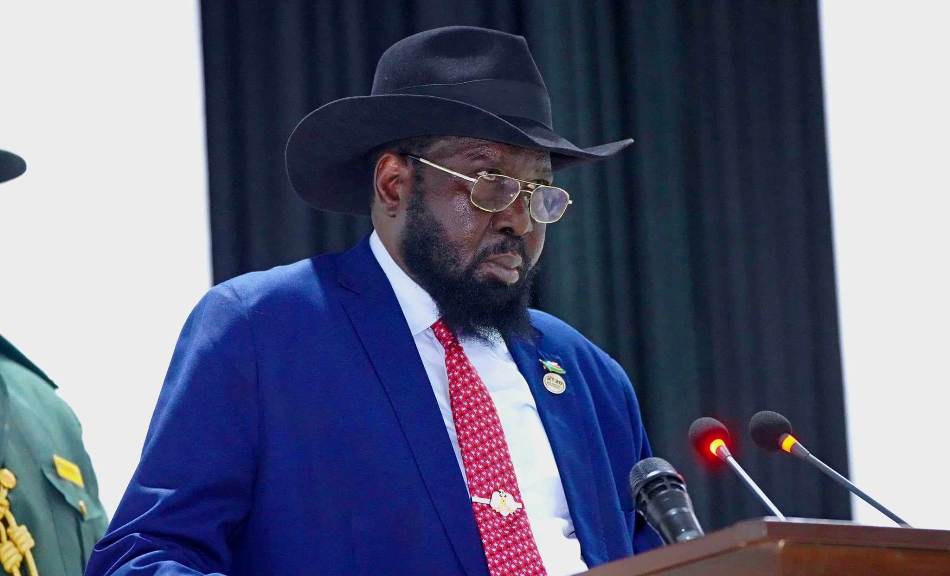Gen. Salva Kiir Mayardit, president of the Republic of South Sudan. |File Photo|.
South Sudanese on social media received the recent reshuffle in the security and defense sectors with mixed reactions as many expressed dissatisfaction and accused President Kiir of practicing favoritism in his appointment.
Some netizens blasted President Kiir for filling up the top position in the country’s security and defense sectors with officers from his home area, Warrap State.
Last evening, President Kiir issued a series of republican decrees removing the Chief of Defense Forces, Gen. Santino Deng Wol, and replacing him with Gen. Paul Nang Majok.
President Kiir also removed the Inspector-General of Police, Gen. Atem Marol Biar, and appointed Abraham Peter Manyuat as his replacement.
In a separate decree announced on the state-run South Sudan Broadcasting Corporation, President Kiir fired Atak Santino Majak from his position as the undersecretary of the ministry of defense and appointed Gen. Santino Deng Wol as a new replacement.
The move angered the citizens on social media, and where others alleged that President Kiir was strategizing for a possible transition, the allegations President Kiir dismissed in his State of the Nation address two weeks ago.
South Sudan’s renowned Economist, James Okuk posted on his Facebook that the recent presidential appointments in security and defense sectors have caught fire of national diversity in South Sudan.
Okuk, however, said the recycling in the Bank of South Sudan does not look fine, either. In the last evening’s changes, President Kiir fired the Governor of the Bank of South Sudan, James Alic Garang, and appointed Mr. Johnny Ohisa as his replacement.
Some social media users analyzed the ethnicity of the officials appointed to the defense and security sector and lamented that the collection fell short of reflecting the nation’s diversity.
“Finally, the next security meeting,” the social media user mocked the appointment. “President Kiir is from Warrap State, the chief of defense forces is from Warrap, the inspector-general of police is from Warrap, the director-general of the National Security Service, Internal Security Bureau is from Warrap, and the commander of the presidential protection unit is also from Warrap.”
Other social media users defended the appointment, citing that every individual has the right to serve in the government despite their ethnic background.
“Individual right Vs. collective responsibility! I assume these gentlemen would be judged on the basis of their performance at individual and institutional levels. As individuals, they have equal rights to serve in the government despite their backgrounds, which is not essential but accidental! Of course, they happened to have come from Warrap, but most importantly, they have been serving within the ranks and files of their respective institutions as sons of South Sudan! After all, Warrap State, for that matter, was not consulted on their appointment. Consequently, they will be judged as individuals based on their performance against the institutional benchmarks and deliverables that would be subjected to public court!”
South Sudan gained its independence from Sudan in 2011 as a result of the free and fair plebiscite, making it Africa’s 54th nation.
There are over 64 tribes in South Sudan, with Dinka, Nuer, Bari, and Azande ranked as the largest ethnic groups existing in Bahr El-Ghazal, Upper Nile, and Equatoria regions.
The opinions shared by the netizens do not represent the stance of The Golden Times | South Sudan. This media was established and managed in Germany to provide accurate and balanced information to people across the world.




